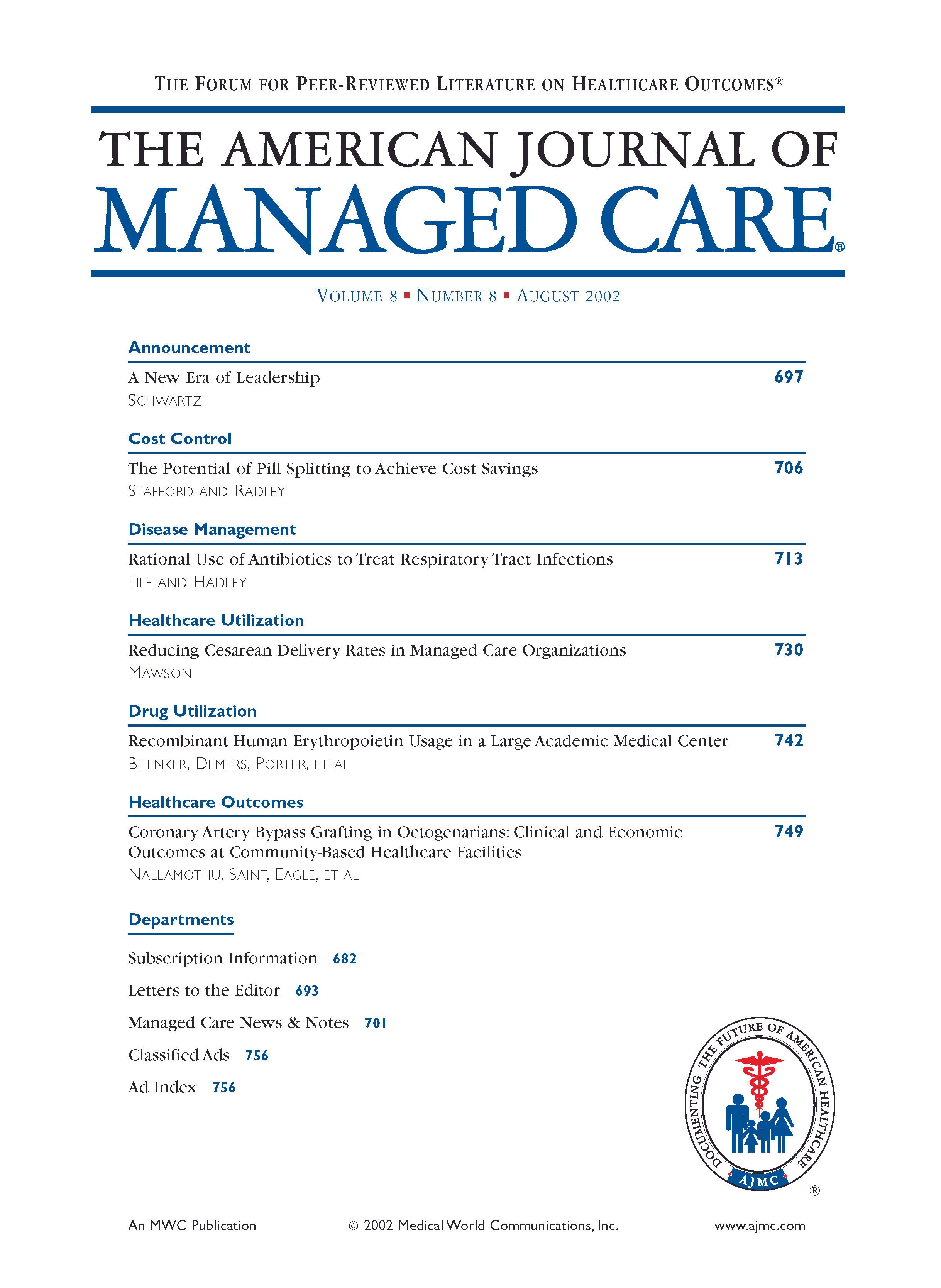- Center on Health Equity & Access
- Clinical
- Health Care Cost
- Health Care Delivery
- Insurance
- Policy
- Technology
- Value-Based Care
Advocacy and Remedies for Healthcare Disparities
In recent years a substantial body of evidence has emerged documenting disparities in health outcomes and in access to healthcare for individuals of different racial, ethnic, and socioeconomic groups. These disparities cannot be explained by variation in clinical conditions. Numerous institutions including the National Institutes of Health, the Institute of Medicine, and the American Medical Association have all expressed concern over these findings. Thus, when the opportunity arose to publish papers stemming from 2 conferences related to health disparities, we were extremely excited. The first conference, held in February of 2000, was the Conference on Diversity and Communication in Health Care: Addressing Race/Ethnicity, Language and Social Class in Health Care Disparities. It was sponsored by the Office of Minority Health in the Department of Health and Human Services, the Agency for Healthcare Research and Quality, the Health Resources and Services Administration, The Commonwealth Fund, and the Sergei Zlinkoff Fund for Medical Education and Research. The second conference, held in March 2003, was the Inaugural Forum on Reducing Racial and Ethnic Disparities in Health Care and was sponsored by the National Managed Health Care Congress and AmeriHealth Mercy, a large Medicaid managed care organization. The impetus to collect and publish these papers came from Olivia Carter-Pokras, PhD, a participant at the conferences and an associate professor in the Department of Epidemiology and Preventive Medicine at the University of Maryland School of Medicine. We thank her for her efforts in bringing this special issue to us.
The papers published from these conferences are a bit different than the types of papers we generally publish. They are not original empirical research studies, but instead reflect the opinions of national experts and the literature in this area. They suggest ways that health disparities may be addressed, and because of this, these papers were evaluated more for their educational merit and their informational contribution to our audience. As such, the Journal is happy to serve as the vehicle to disseminate this information and hope, given the importance of this topic, that our audience finds the papers useful and informative.

Telehealth Intervention by Pharmacists Collaboratively Enhances Hypertension Management and Outcomes
January 7th 2026Patient interaction and enhanced support with clinical pharmacists significantly improved pass rates for a measure of controlling blood pressure compared with usual care.
Read More
HEDIS Glycemic Goal Achieved Using Control-IQ Technology
December 22nd 2025A greater proportion of patients with type 1 diabetes who used automated insulin delivery systems vs multiple daily injections achieved the Healthcare Effectiveness Data and Information Set (HEDIS) glycemic measure.
Read More
Linking Data to Determine Risk for 30-Day Readmissions in Dementia
December 22nd 2025This study found that certain characteristics in linked electronic health record data across episodes of care can help identify patients with Alzheimer disease and related dementias at high risk of 30-day readmissions.
Read More
Performance of 2-Stage Health-Related Social Needs Screening Using Area-Level Measures
December 19th 2025Limiting health-related social needs screening to lower-income areas would reduce screening burdens; however, this study found a 2-stage screening approach based on geography to be suboptimal.
Read More

